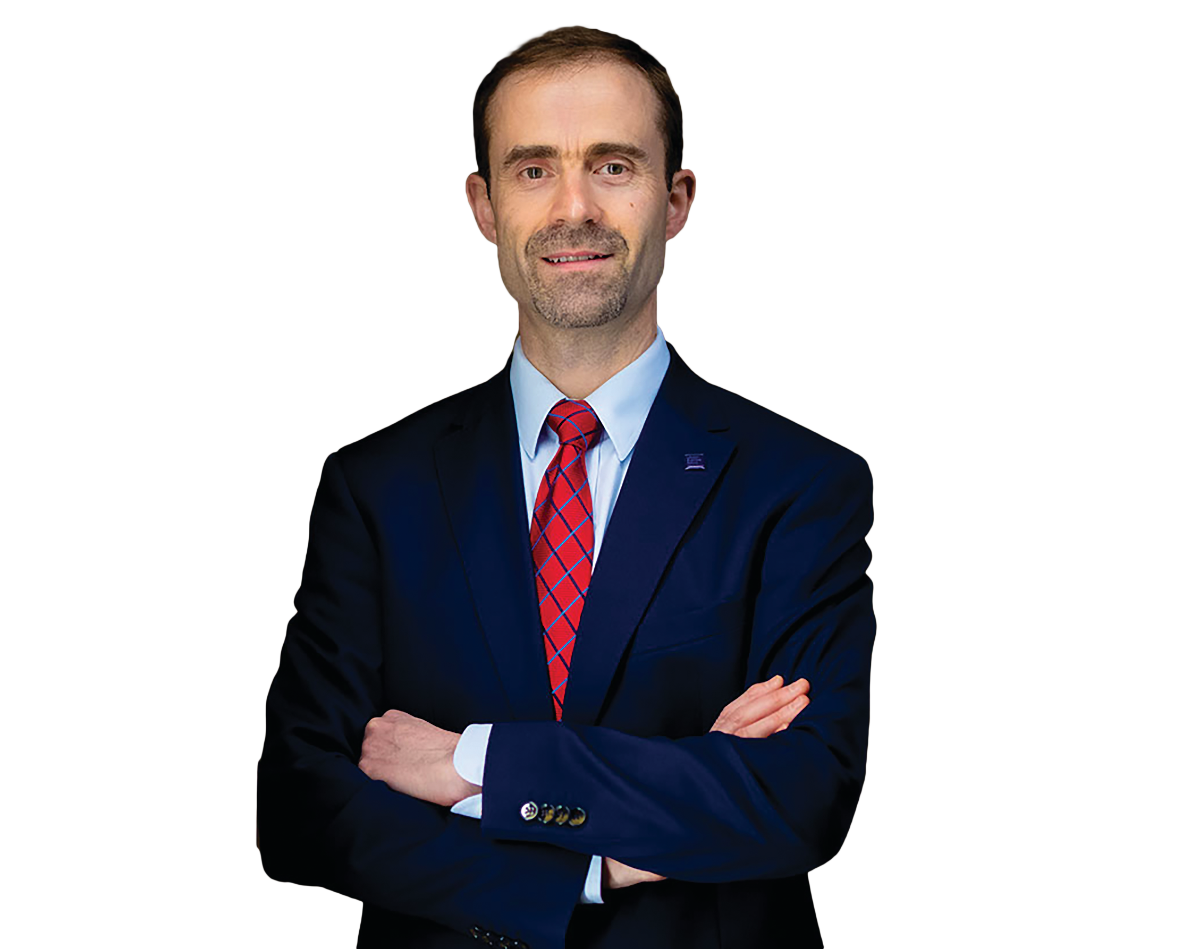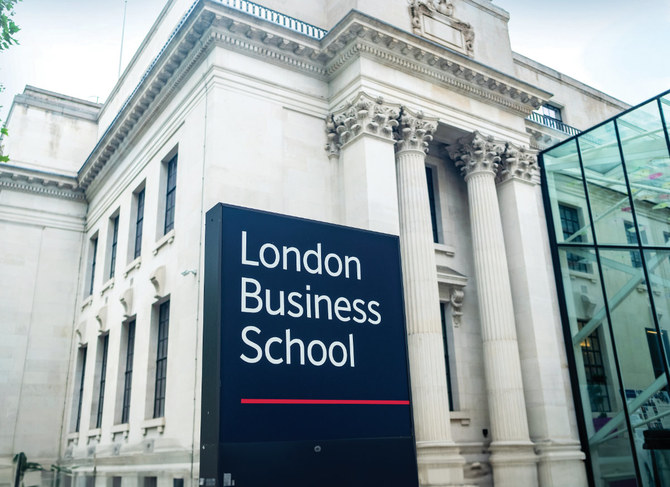RIYADH: Amid Saudi Arabia’s ongoing efforts to nurture its young talent, the London Business School reaffirmed its commitment to supporting the Kingdom in achieving its Vision 2030 objectives.
The dean of the premier institute said the school is focused on infusing high-quality management and leadership skills among the youth throughout the Kingdom.
In an interview with Arab News, Francois Ortalo-Magne said: “So many people are young, the country is growing fast, so lots of the young people need to be effective as workers.”
Ortalo-Magne, who often visits the Kingdom, said his business school’s partner organizations are enthusiastic about training their respective members or employees with “a real dedication to recruit properly and to train them to help them grow.”
“We found with our partners that this is a real mindset, that we are here for Vision 2030,” the official added.
The LBS dean described Saudi Aramco as one of their prominent clients and emphasized that many other major organizations in the Kingdom benefit from the school’s expertise.

Francois Ortalo-Magne, London Business School dean. (Supplied)
Ortalo-Magne highlighted a unique partnership where LBS collaborated with Saudi organizations to design a 10-week training program specifically tailored to meet the immediate requirements of young employees.
Talking about training programs for women, the official stressed the need to offer them a healthy environment to foster growth and leadership skills.
“There are some programs that we have designed to help women specifically, not only with the training but with the coaching, identifying sponsors and we are getting excellent results with that,” he added.
While men and women benefit from similar training in many areas, Ortalo-Magne said there is a focus on unleashing women’s talent.
Highlighting LBS’ longstanding presence in Saudi Arabia, the dean said his frequent visits to the country are primarily driven by the school’s dedication to connecting with alumni and engaging with corporate clients seeking support in their transformation journeys.
“I come here, always for the same, to meet our alumni and hear from them what they are doing and how we can better support them and to meet corporate clients and organizations that we are helping with their transformation.”
The business school collaborates with organizations to identify their specific objectives and then tailors training programs to empower employees to achieve those goals. These programs cover a wide range of areas, including strategy, finance, diversification, data-driven decision-making, and fostering women’s leadership.
He explained: “We help high-potential employees within the organizations who are likely to drive transformation. For instance, we equip management with strategy and finance skills, enable organizations to diversify, become more consumer-centric, and make data-informed decisions.”
The school operates across two campuses in different cities, with modern facilities in both London and Dubai.
Ortalo-Magne highlighted the flexible approach to training delivery, which can take various forms, depending on an organization’s needs.
For certain programs, faculty members visit the Kingdom to deliver the training. In other cases, it is a combination of interventions held in both Riyadh and London, he explained.
Ortalo-Magne added: “There’s another big element, of course, in particular after COVID-19, (that is) using online technologies.”
While the school values face-to-face interaction as an integral part of the transformation, he said they advocate enhancing their programs with online components.
Regarding accessibility to LBS programs, Ortalo-Magne stressed that “when it comes to selecting candidates for a program, it’s all about the partnership that we have with the corporate partner.”
Usually, organizations have their own assessments of skills required for their people. “So, they will determine with us what type of training and outcome they’re looking for and what prerequisite skills people will need.”
He added: “We don’t just train the elite or the top (people) of an organization. Some organizations have ambitions to train a whole layer of management. Then it’s up to us to develop learning methodologies to help that whole layer.”
Ortalo-Magne stressed the need for strategy, finance, and leadership development.
He also noted a growing interest in the concept of “train the trainer.”
“We’re also seeing demand for ‘train the trainer’ so that we don’t just have everybody come to the business school, but we can train people who can then train within their organizations, which allows us to scale our training faster.”
The dean emphasized LBS’ vision of being an engaged community walking the learning journey together. He reiterated the importance of trust and partnership in delivering effective training programs.



























